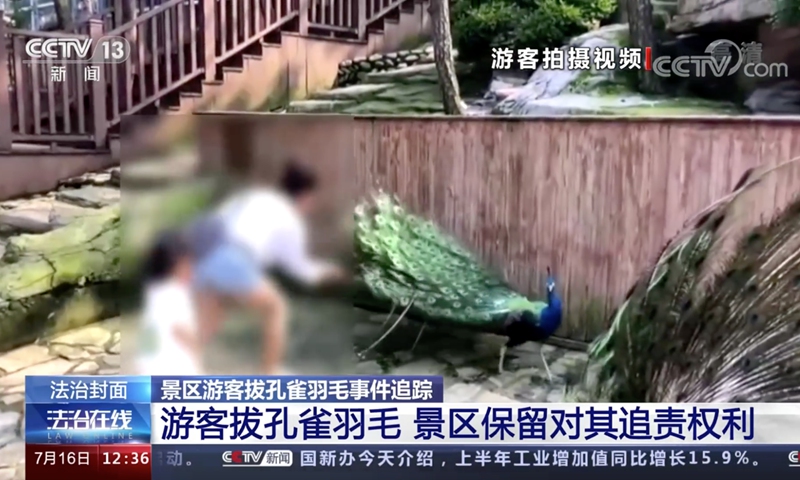
Screenshot from Sina Weibo
A mother who plucked a feather from a peacock at a scenic spot in North China's Hebei Province to please her daughter has sparked outrage online with legal experts saying her behavior may have violated some laws.
A video clip circulating on the internet shows the woman at the Yansaihu scenic spot in Qinhuangdao, Hebei, plucking a feather from a peacock's tail to please her daughter. The incident attracted a slew of criticism from the public who asked the management office of the scenic spot to punish her.
However, the management office said it can only educate her and has no right to punish her as they have never come across such an incident before. They left the case in the hands of the local government and said they will reserve the right to hold her accountable for the incident based on the peacock's condition.
A staffer from the management department of the scenic spot told the Global Times on Sunday that the tourist in dispute has not contacted them to apologize.
According to Chinese TV host Bai Yansong, the peacock that was attacked is green peafowl, classified as a first-class protected animal in China.
Zhu Wei, a professor from China University of Political Science and Law, explained to the Global Times that with the continuous improvement of laws and regulations, a disciplinary mechanism has been established to tackle such uncivilized behaviors by tourists. If the act leads to injuries or death of the peacock, the tourist will probably shoulder civil liability for compensation or even administrative penalties.
On the other hand, Chinese tourists who violate domestic and foreign laws and regulations, public orders and good customs and cause serious negative social impacts will be blacklisted in the records of uncivilized tourist behaviors, according to a regulation blacklisting tourists that engage in inappropriate public behaviors issued by the China National Tourism Administration enacted in 2016.


